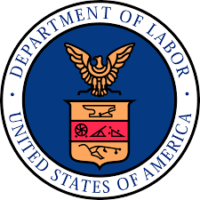Effective Thursday, February 13, 2014, the U.S. Occupational Safety and Health Administration (OSHA) published an interim final rule governing the agency’s future handling of whistleblower complaints under Section 402 of the FDA Food Safety Modernization Act (FSMA), which protects workers who disclose food safety concerns.[1] While similar to other whistleblower protection statutes in procedure, the new rule follows a trend making it significantly easier for a claimant to establish a prima facie case under FSMA’s whistleblower protection provisions. Food industry employers should be aware of the new rule and consider implementing plans for managing what may appear to be fairly low-level suggestions or complaints, but could nevertheless qualify as “protected activity” under this new lower threshold for whistleblower protection.
Section 402 of FSMA protects employees who are engaged in the manufacture, processing, packing, transporting, distribution, reception, holding or importation of food from retaliation when they raise food safety issues with their employer or the government.
The new rule establishes procedures and time frames similar to those under the Sarbanes-Oxley Act (SOX) for the handling of retaliation complaints under FSMA. The rule includes procedures for filing employee complaints with OSHA (which must be filed either verbally or in written form within 180 days of the alleged retaliation); OSHA investigative actions; a requirement that OSHA issue a written reasonable cause determination within 60 days; the process for appealing OSHA determinations to an Administrative Law Judge (ALJ) for a hearing with de novo review; ALJ hearing procedures; the process for seeking review of ALJ decisions by the Administrative Review Board (ARB); and judicial review of the resulting final decision.
Under the new FSMA rule, complaining employees are protected from retaliatory actions[2] as long as they have a reasonable belief—defined in the regulation as a subjective, good-faith belief and an objectively reasonable belief—that the complained-of conduct violates the Federal Food Drug and Cosmetic Act (FD&CA). However, the whistleblower need not show that the conduct complained of constituted an actual violation of law.
In order to show the belief is subjectively reasonable, an employee will only need to show that he or she “actually believed” the conduct complained of constituted a violation of relevant law. In order to show an “objectively reasonable” belief, an employee must show that a reasonable person would have held the same belief, having the same information, knowledge, training and experience as the complainant. Often the issue of “objective reasonableness” involves factual issues and cannot be decided in the absence of an adjudicatory hearing.
The interim final rule cites to and adopts the Sylvester v. Parexel International, L.L.C.[3] decision, a SOX case in which the ARB reversed an ALJ decision in favor of this more lenient standard for employees. The Sylvester decision was the first in what has now become a trend that reduces the previously held standard to require that an employee show only that he or she “reasonably believes” that the conduct complained of violated the statute, not that a violation actually occurred.
Examples of potential violations of the FD&CA that could, if reported, form the basis of a FD&CA whistleblower claim include: failure to maintain adequate personal cleanliness, failure to wash hands thoroughly, failure to maintain gloves where appropriate and failure to take “other necessary precautions against contamination.”[4]
Potential violations of the FD&CA, like the examples listed above, may be difficult for an employer to consistently identify, let alone regulate and control beyond whatever mechanisms it already has in place. This difficulty, coupled with the alarmingly light burden of proof placed on the employee making a claim of retaliation after blowing the whistle on an alleged infraction, creates a significant likelihood of increased exposure to employers, particularly when making legitimate decisions regarding terminations or employee discipline.
What Can Employers Do?
Given the low bar set by the new rule for meeting the regulation’s standard for protection, employers need to examine their current procedures under food safety. What may have been innocuous before—a complaint that someone’s shoes are unclean or that jewelry is being worn around processing equipment—may now be considered a protected activity.
Section 402 arguably established a very low statutory standard for engaging in protected activity, and now OSHA’s new rule, which is consistent with the lax pleading standards applicable to SOX retaliation claims, will make it difficult for food industry employers to manage workers who may complain about events that occur every day. For example, a worker who raises a concern about adherence to or deficiency of a particular Good Manufacturing Practices may be engaging in protected activity.
Importantly, employers are not without recourse. A claim can be dismissed pre-investigation if the employer can show that it would have taken the same action regardless of whether the employee had engaged in protected activity. As such, maintaining good evaluation procedures and documentation of performance is now more important than ever. In addition, employers should strive to create a culture that promotes the internal reporting of a violation and ensures a prompt investigation and resolution of such complaints. Studies confirm that employees make fewer external complaints if they perceive their employer to be promoting a culture of compliance.
We recommend the following to prepare for and anticipate the effects of the new rule:
• Develop a food safety reporting policy
• Train line managers and supervisors regarding the importance of dealing with complaints professionally and in a manner consistent with company policy
• Log complaints
• Document investigations into the subject matter of the complaint and any actions taken as a result
• Ensure that any adverse action taken with respect to an employee who has lodged such a complaint would have been taken absent the complaint and is consistent with past practice.
Summary
The interim final rules continue a trend that provides employees more freedom to cast otherwise ordinary complaints about workplace conditions—in this case food safety—as the basis for whistleblower protection in the event they are subject to discipline. While public employers are accustomed to dealing with “free speech” in the workplace, private employers are not. These new whistleblower protection and anti-retaliation laws are essentially creating free speech and adverse action safe zones for employers in all sectors of the economy. Employers should recognize this trend is growing and begin to train supervisors to learn how to manage performance without punishing protected activity or speech.
Earl “Chip” Jones is a shareholder in the Workplace Safety & Health and Whistleblowing & Retaliation practices of Littler Mendelson, where he counsels employers, including companies in the food industry, on compliance programs and responding to allegations of misconduct.
Linda Jackson is a shareholder with Littler with significant experience representing clients on whistleblowing and general employment litigation matters. The authors can be reached at ejones@littler.com and ljackson@littler.com, respectively. Littler Associate Jill Weimer assisted in the preparation of this article.
References
1. www.regulations.gov/#!documentDetail;D=OSHA_FRDOC_0001-0496.
2. Actions that are prohibited include, but are not limited to, “discharge,…intimidating, threatening, restraining, coercing, blacklisting or disciplining, any employee with respect to the employee’s compensation, terms, conditions or privileges of employment.” 29 C.F.R. § 1987.102(a).
3. ARB Case No. 07-123 (May 25, 2011).
4. 21 C.F.R. § 110.10.




